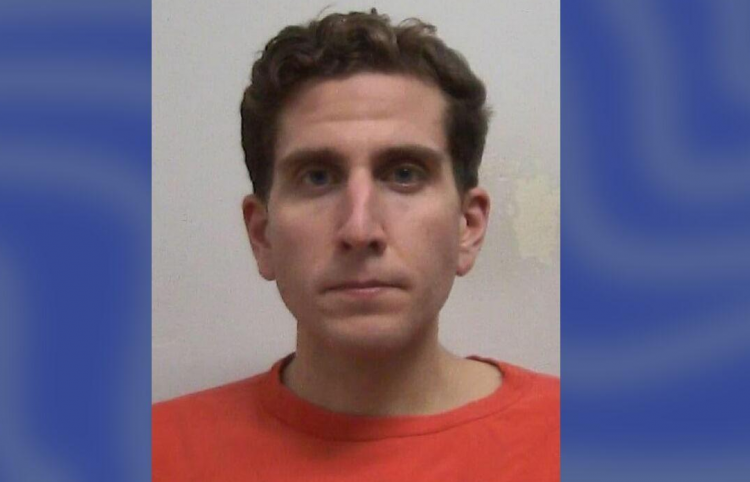Bryan Kohberger, the suspect accused of killing four University of Idaho students in November 2022, claims that cellphone tower data proves he was out driving miles away from the crime scene at the time of the murders, according to a new court filing by his legal team on Wednesday. Kohberger's attorneys plan to call an expert witness to testify that the location of his mobile device confirms his alibi.
In the filing, lead defense attorney Anne Taylor stated, "Mr. Kohberger was out driving in the early morning hours of Nov. 13, 2022, as he often did to hike and run and/or see the moon and stars. He drove throughout the area south of Pullman, Wash., west of Moscow, Idaho." The spot where Kohberger allegedly was driving on the night of the murders is approximately 10 miles from the crime scene.
Kohberger, who was a doctoral student studying criminal justice and criminology at Washington State University in Pullman, Washington, has been indicted on charges of murder by a grand jury. He was arrested in Pennsylvania in December 2022 and has pleaded not guilty to the charges. If convicted, he could face the death penalty.
The victims-Madison Mogen, 21, Kaylee Goncalves, 21, Xana Kernodle, 20, and Ethan Chapin, 20-were stabbed to death in the early hours of Nov. 13, 2022, at their off-campus residence in Moscow, Idaho. DNA from a knife sheath left at the crime scene led investigators to Kohberger, according to prosecutors.
Kohberger's defense team intends to rely on testimony from cell tower data expert Sy Ray, an experienced military and law enforcement instructor who they say can prove their client was miles away from Moscow at the time of the crime. Ray, who founded ZetX Corp., a company specializing in cellular geo-location mapping, has testified in many criminal cases, including homicides.
However, Ray and his company's Trax mapping software have faced criticism in the past. In a 2022 ruling by District Court Judge Juan Villaseñor in Colorado, the judge ruled that Trax-related evidence was inadmissible and based on a "sea of unreliability" after other experts found the technology to be problematic. Judge Villaseñor also questioned Ray's credibility, stating that he "inflated his credentials" and inaccurately claimed to be an engineer despite lacking the necessary qualifications and credentials.
The defense filing also stated that Kohberger was an avid runner and hiker and that as the school year began, this activity decreased while nighttime drives increased-a claim they say is supported by cellphone data and photographs he took of the night sky.
Previously, authorities had obtained a search warrant for data connected to cellphones in the area at the time of the killings, but Kohberger's did not show up because he had turned it off, according to investigators. However, a separate search warrant issued on Dec. 23, 2022, provided Kohberger's cellphone data for the 24 hours before and after the incident, showing that he left his home two hours before the killings, turned his phone off, and then turned it on again afterward when it was seen traveling from Idaho to Pullman.
The deaths of the four University of Idaho students shocked the small community of Moscow, which has a population of 25,000 residents and an 11,000-strong student population. As the case continues to unfold, Kohberger's legal team hopes that the cellphone tower data and expert testimony will support their client's alibi and prove his innocence in the face of the serious charges against him.




